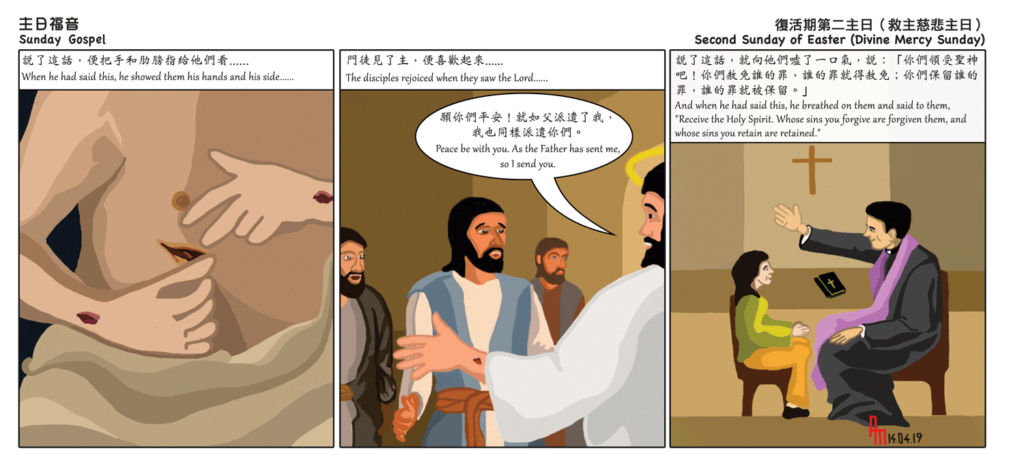JOHN 20:19-31
– Fernando Armellini SCJ
Claretian Publications, Macau
The Gospel of Mark says that Jesus appeared to the eleven “and reproached them for their unbelief and stubbornness, in refusing to believe those who had seen him after he had risen” (Mk 16:14). In Luke’s Gospel, the Risen Christ addresses the amazed and frightened apostles and asks: “Why are you upset, and how does such an idea cross your minds?” (Lk 24:38) In the last page of the Matthew’s Gospel it even says that when Jesus appeared to the disciples on a mountain in Galilee (therefore long after the apparitions in Jerusalem), some still doubted (Mt 28:17).
All, therefore, doubted, not only the poor Thomas. How is it then that the evangelist John seems to want to focus on him the doubts that have gripped the others? Let us try to understand.
When John writes (about the year 95 A.D.) Thomas was already dead for some time. The episode, therefore, is certainly reported not to put this apostle in a bad light. If his problems of faith were highlighted, the reason is another. The evangelist wants to respond to the questions and objections that Christians of his communities insistently raised. It is the third-generation Christians, people who have not seen the Lord Jesus. They find it hard to believe; they are struggling in the midst of many doubts; they would like to see, touch, and verify if the Lord is truly risen. They ask, are there evidences that he is alive? How is it that he no longer appears? These are the questions that we ourselves ask today.
To them, Mark, Luke, and Matthew respond by saying that all the apostles had hesitations . Whereas John takes Thomas as a symbol of the difficulty that every disciple meets to come to believe.
What John wants to teach the Christians of his communities (and us) is that the Risen One has a life that escapes our senses; a life that cannot be touched with bare hands or seen with the eyes. It can only be achieved through faith.
It seems that John enjoys outlining the figure of Thomas in this way. In the end, he does him justice. He puts on his mouth the highest, the most sublime profession of faith. My Lord and My God! His words reflect the conclusion of the disciples’ itinerary of faith.


 Follow
Follow


